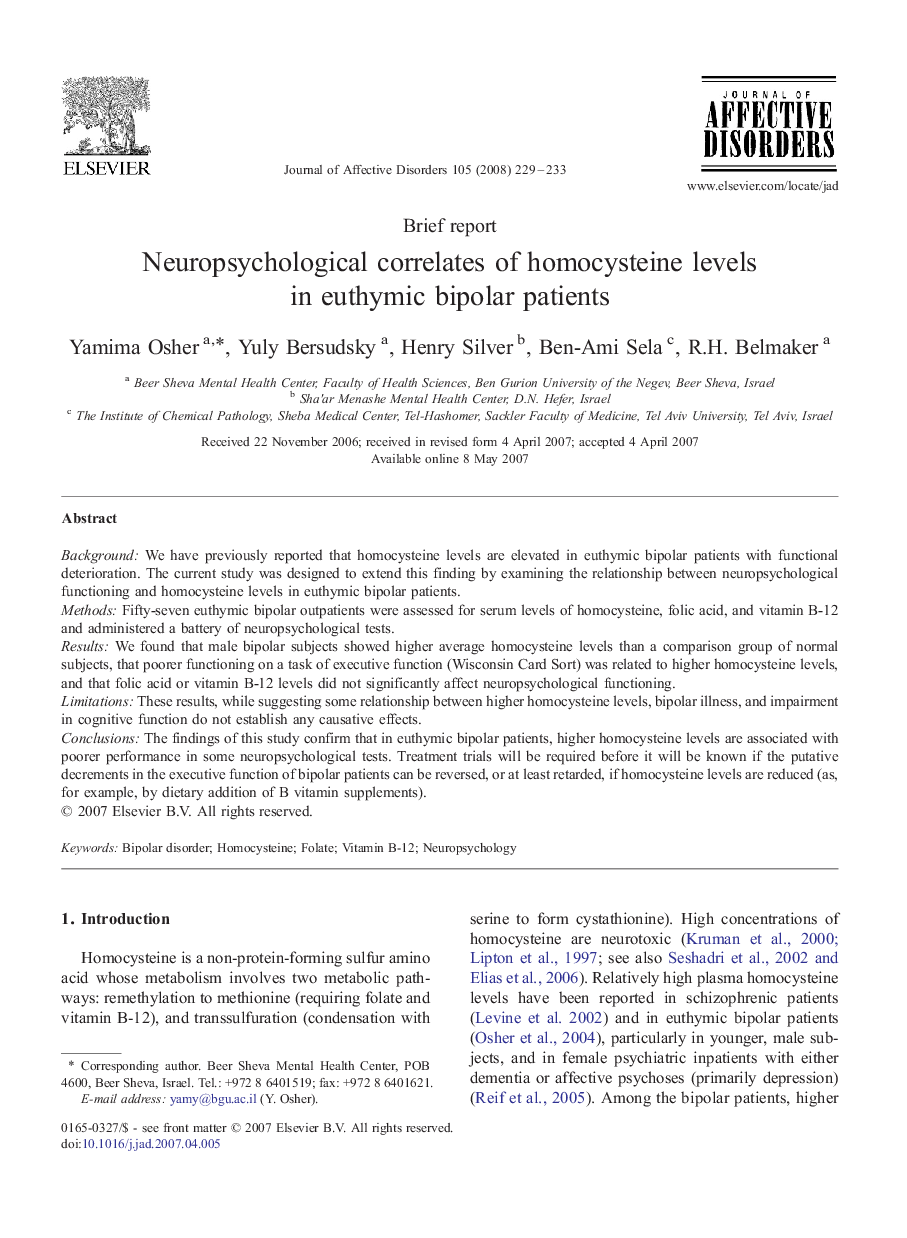| Article ID | Journal | Published Year | Pages | File Type |
|---|---|---|---|---|
| 4187733 | Journal of Affective Disorders | 2008 | 5 Pages |
BackgroundWe have previously reported that homocysteine levels are elevated in euthymic bipolar patients with functional deterioration. The current study was designed to extend this finding by examining the relationship between neuropsychological functioning and homocysteine levels in euthymic bipolar patients.MethodsFifty-seven euthymic bipolar outpatients were assessed for serum levels of homocysteine, folic acid, and vitamin B-12 and administered a battery of neuropsychological tests.ResultsWe found that male bipolar subjects showed higher average homocysteine levels than a comparison group of normal subjects, that poorer functioning on a task of executive function (Wisconsin Card Sort) was related to higher homocysteine levels, and that folic acid or vitamin B-12 levels did not significantly affect neuropsychological functioning.LimitationsThese results, while suggesting some relationship between higher homocysteine levels, bipolar illness, and impairment in cognitive function do not establish any causative effects.ConclusionsThe findings of this study confirm that in euthymic bipolar patients, higher homocysteine levels are associated with poorer performance in some neuropsychological tests. Treatment trials will be required before it will be known if the putative decrements in the executive function of bipolar patients can be reversed, or at least retarded, if homocysteine levels are reduced (as, for example, by dietary addition of B vitamin supplements).
